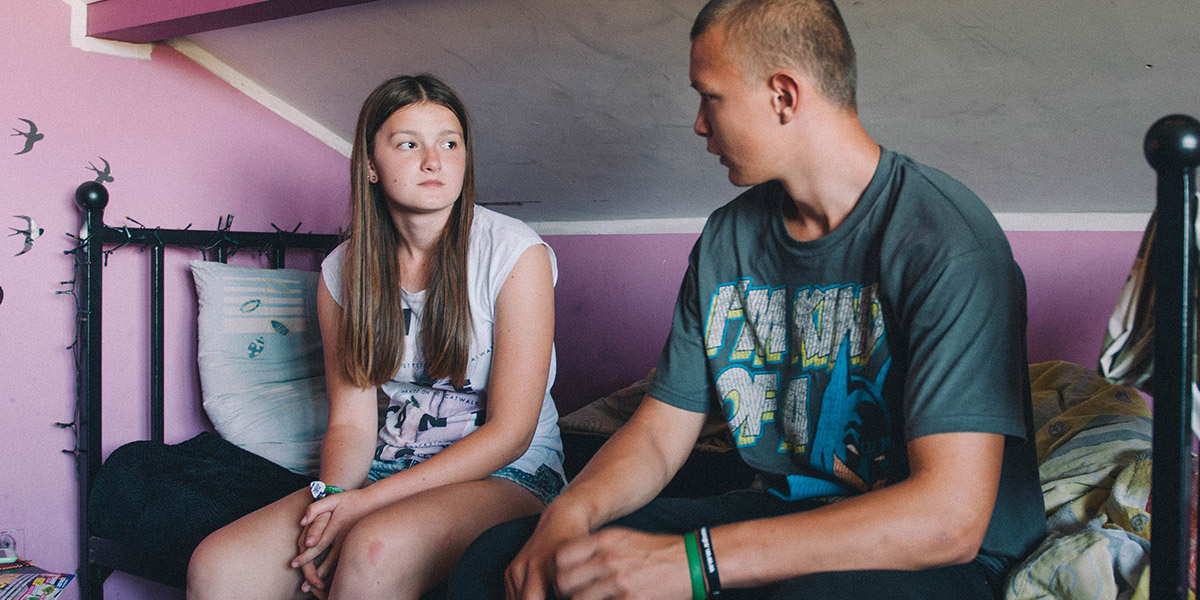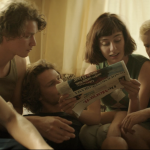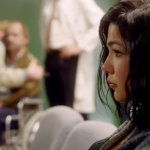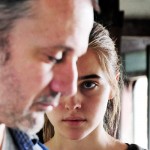Director: Rosanne Pel
By the very nature of its grim central incident, Light as Feathers leaves itself wide open to accusations of exploitation. But while the feature debut of Rosanne Pel is ‘shocking’ in the same visceral sense as many an indie drama depicting sexual violence that’s come before it, the Dutch filmmaker also justifies her choice of story with her acute and utterly unsentimental understanding of human behaviour. Though the easy emotional gut-punches are there for the taking, Pel seems more interested in exploring the relation between psychology and environment, fleshing out the dour context to the young Eryk’s contemptible actions without ever letting this manipulative figure off the hook.
Filmed with a deadened, drained aesthetic that flattens moments of cruelty and mundanity onto the same level of significance, there’s an oppressive sense of nowhere-ness to the small Polish village where the 15-year-old protagonist lives. As the one permanent male in a house shared with three generations of women, Eryk is uncomfortably close with his domineering mother Ewa, who doesn’t even try to hide her jealousy when she finds out that her son has a girl in his life.
This feeling of protectiveness seems mutual, but between moments of intimacy that never quite push their incestuous connotations beyond the implicit, Ewa still brings home the occasional callous and neglectful man, while Eryk hangs out with his 13-year-old neighbour Klaudia. It isn’t long before the corruption of the boy’s home life imprints onto this new relationship, as Eryk forces himself upon Klaudia before informing her with a precocious air of civility, “I’d prefer if it stayed between us.”
Even removed from its unsettling context within the narrative, Eryk’s calculated attempt to play the adult in the room would still come across as obvious pretence in light of the ongoing reminders of the inner animal that pervade his rural environment. Light as Feathers opens with a scene of a dog breastfeeding its pups, followed by footage of a bird hatching, and the nature imagery continues as such from there, mapping out our lead’s messily intermingled desires and instincts.
But if the local pets and farm animals reflect Eryk’s inner life, his interactions with these beasts lay bare his predatory manner. The film’s rape scene immediately cuts to a shot of Eryk stroking one of the neighbourhood’s many geese. Elsewhere, the boy plays puppeteer to a pet cat by moving its legs to the Lone Ranger theme and lifts a dog out of the water just to watch it air-paddle.
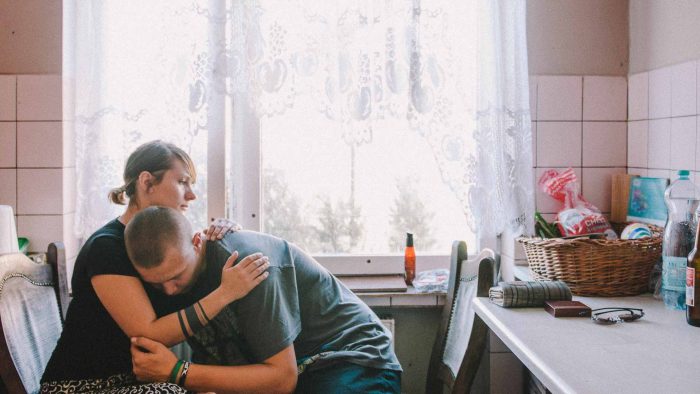
But perhaps the most telling parallel is evoked when the sequence of Eryk assisting in the de-feathering of the geese cuts to a scene of him watching Klaudia playing volleyball at school. To Eryk, the young object of his fixation is something to ‘take care’ of, even against her own wishes. We see this when he tries to pressure Klaudia into letting him make her a sandwich, perhaps trying to convince himself more than her that his intentions are good.
Then again, guilt seems integral to Eryk’s still-unsophisticated manipulation tactics. This angle can be witnessed early on when he tells Klaudia to repeatedly slap him, creating a moral obligation for her to be nice to him, and later, when he traps her in a room in order to deliver a condescending lecture lamenting how their relationship hasn’t been the same ever since he raped her.
Eryk’s youthfully unrefined social pretences come close to darkly comic the more he tries to explain away his crime, leading to a cathartic moment when Klaudia’s mother sees right through his bullshit and cuts him down to size (never has a grown woman’s threat to slice a 15-year-old’s balls off felt more cheer-worthy). But a very different and greater form of release comes when Ewa first learns of her son’s actions. In a few seconds of eye contact between Eryk and his mother, the film offers perhaps the closest thing we ever see to unguarded shame in the former, while twinning his emotions with the despair of Ewa as she truly sees for the first time the young man she raised.
The mood of this moment is further complicated by the lingering implication that Eryk’s warped understanding of relationships was influenced in part by his troubled upbringing – a notion that the story all but confirms with an ending that brings things full circle – but thankfully, Pel’s poignant film stops short of trying to answer any moral questions it shouldn’t.
Acknowledging the psychology and the social context of its events without letting any one lens of interpretation dominate the drama, Light as Feathers is a work of neither blunt messaging nor blunt emotions, enveloping us in its stark yet messy reality instead of bludgeoning us into submission. It may not paint the most optimistic of pictures, but perhaps the sombre humanity that Pel brings to the drama is its own kind of hope.
Light as Feathers is produced by Family Affair Films. International sales are handled by Wide.

